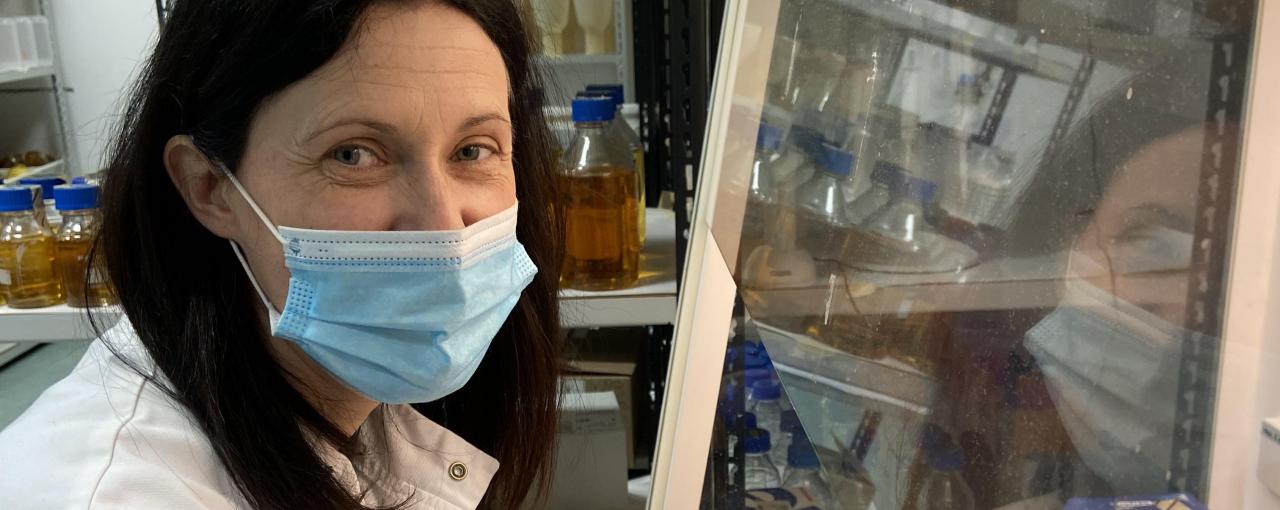Today, 11th February marks International Women and Girls in Science Day. Established in 2015 by resolution of the General Assembly of the United Nations and realized by UNESCO and UN Women, the day recognizes the critical role women and girls play in science and technology and aims to promote full and equal access.
Here, at the Research Complex at Harwell, we honour this important day by asking our new Assistant Technician Lucy Roff to share her story.
Did you have a role model that influenced your decision to work in science?
I have always had a keen interest in science, particularly human biology. I can’t say I had the best science teachers, but I worked really hard and had encouraging parents, particularly my dad. He was a biochemist and worked at Harwell for many years. He used to bring home microscopes where we would look at all sorts of things and I also remember having a tour of his lab and finding that really exciting when I was primary age. I remember walking into a room with lots of prosthetic hips that my dad was working on. It's thanks to these childhood experiences that led me to to study biochemistry and a Masters in molecular biology.
What are your biggest achievements, and what are your biggest failures?
My biggest achievement was reaching senior technician in the cytogenetic laboratory at the Churchill Hospital in Oxford. However reaching that level required some difficult decisions balancing work life and family life. I would say there are still prejudices and negative views of women who would like to work part time in senior roles and although I hope it is getting better with paternity leave, etc., I still feel women mostly take on childcare alongside their career and there still needs to be improvements made in flexibility of working hours and job sharing. I'm glad to be back in the labs here at Research Complex and being a small part of what we do here is exciting! Who knows what the future holds? It's about seizing any opportunities whilst feeling that you have the support and room to develop to your full potential.
If you were completely free to choose a scientific topic to work on, which would it be?
There are quite a number of scientific topics that I would like to work on. During my studies I worked on the protein Survivin, an essential protein molecule for the regulation of mitosis and apoptotic inhibition, which is overexpressed in cancer. I enjoyed looking at this protein as a target for cancer therapeutics and it would be very interesting to do more work in this area.
My stint as a carer for the elderly for 5 years gave me a real insight as to the reality of living and coping with dementia. Looking after those with dementia and giving them the best quality of life was rewarding but challenging. There is no cure and as the number of people with dementia is increasing year on year, I would be interested to work in research that can better understand the disease and its development on the brains function, to find new treatments and to improve memory loss drugs.
In your opinion, which changes, if any, are needed in the scientific system to be more attractive to women in science and possible future scientists?
I think there is still a lot more men in senior positions than women and while this is the case many young girls may not see themselves in these roles and never reach their maximum potential. I think more is being done to reach young girls before they choose their GCSEs and A Levels in showing them that choosing STEM subjects holds great opportunities for them. I believe more work needs to be done at primary school age so that younger girls are encouraged to believe that they can be in these roles particularly where there is an imbalance in careers involving engineering, physics and space.
Image copyright: © Research Complex at Harwell


